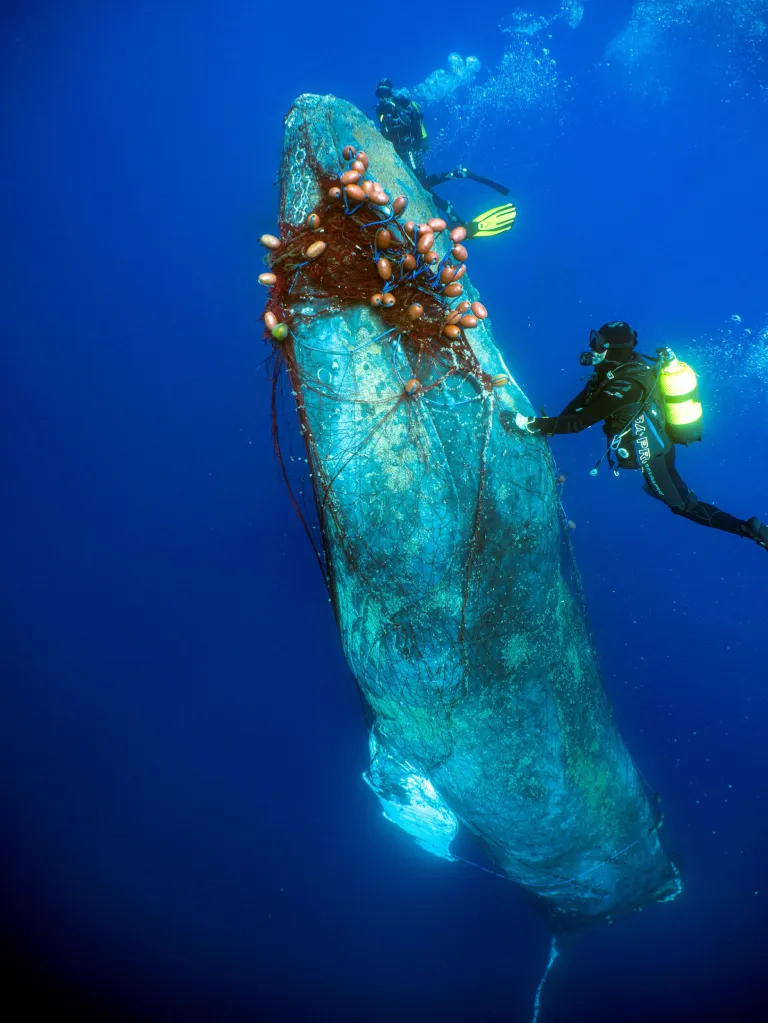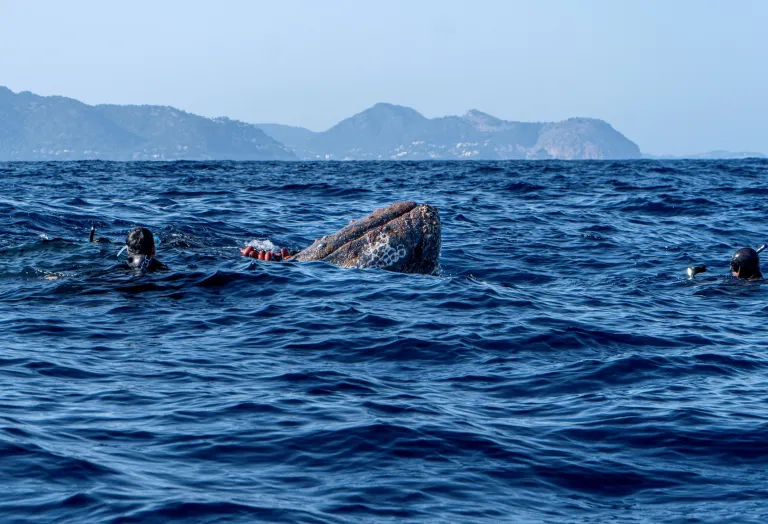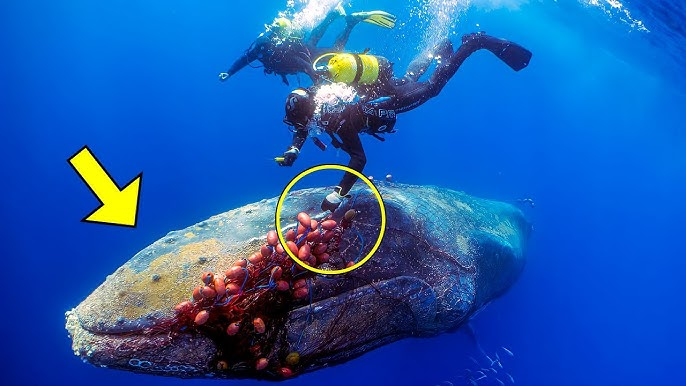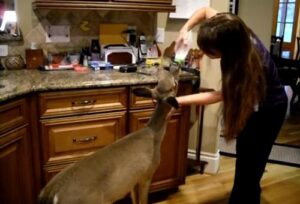In the open ocean, a massive humpback whale found itself trapped — entangled in a ghostly web of discarded fishing netting, unable to swim freely. Sensing the danger, a courageous diver plunged into the water and started cutting the whale free, risking everything to restore its freedom and life.
The whale was suffering. The net had wrapped around its body and fins, tightening with every movement, constraining its ability to breathe and navigate. Time was against it — the longer the entanglement lasted, the deeper the injury, exhaustion, or drowning risk.
When the diver arrived at the scene, the whale lay heavy and motionless in the water. With careful precision, he swam close, assessing where the net was strangling its skin and muscles. Part of the whale’s fluke and tail were ensnared. The diver worked from the safer parts toward the more dangerous zones, knife in hand. He avoided sudden cuts that could injure the animal or himself. Many times, the whale moved, causing tension in the net. Each shift threatened to hold the diver or entangle him further.

But he persevered. He sliced through thick rope, disentangled mesh, tugged at nets stuck under fins, and gently coaxed the whale to reposition so further cutting was possible. At moments, he paused to breathe, always keeping one eye on the whale’s flanks and flukes. The ocean around him felt vast, but in that moment it was narrow and dangerous.
After many tense minutes, the whale freed itself. It drifted toward deeper water, flexing its tail, regaining strength. Then with a mighty flick of its fluke, it swam away — alive, liberated, and seemingly grateful.

That one act exposes a brutal truth: many marine creatures suffer due to human negligence. Fishing nets — especially illegal drift nets and “ghost nets” lost or abandoned — entangle whales, turtles, sharks, and many more. They’re silent killers beneath the waves, choking life.
This rescue is more than drama. It challenges us: do we accept the ocean’s destruction as inevitable, or do we act? Every whale freed is a statement — that nature deserves respect, that the margin between life and death is often human hands, that animals worth saving are not just stories but real beings.



